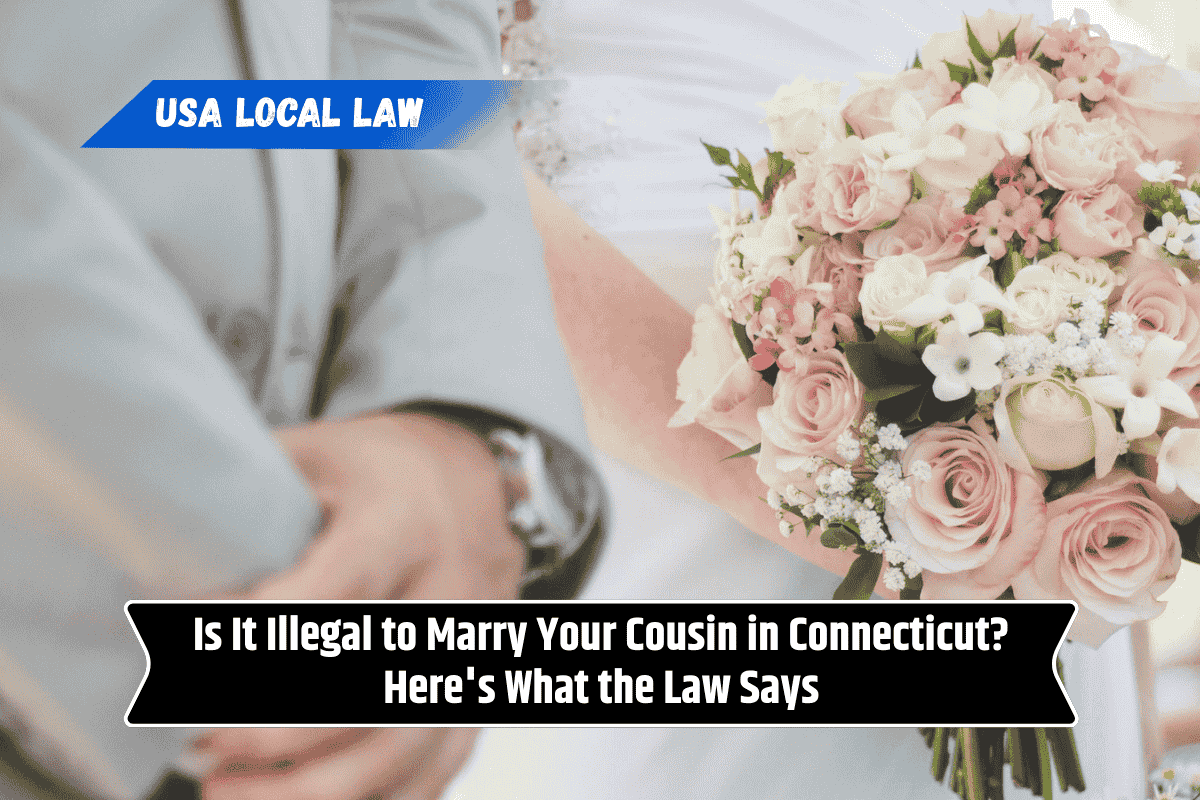Marriage laws in the United States can vary from state to state, especially when it comes to marrying a relative. Some states ban cousin marriages completely, while others allow it under certain conditions.
If you live in Connecticut or are planning a wedding there, you might wonder — is it legal to marry your cousin? Let’s look at what Connecticut law says about cousin marriage and what you need to know.
What Does the Law Say About Marrying Your Cousin in Connecticut?
In simple terms, yes — it is legal to marry your cousin in Connecticut. The state does not ban marriage between first cousins, making it one of the many U.S. states that allow cousin marriages without restrictions.
Under Connecticut General Statutes § 46b-21, the state clearly outlines which close family relationships are not allowed to marry. These include:
Parent and child
Siblings (brother and sister)
Uncle and niece / Aunt and nephew
Grandparent and grandchild
First cousins are not on that list, so the law does not prevent them from getting married.
Can You Marry Your First Cousin in Connecticut?
Yes, first cousins are legally allowed to marry in Connecticut. You don’t need any special permission or medical testing, and the process is the same as for any other couple applying for a marriage license.
There are no extra conditions such as:
Proof of infertility
Medical certificates
Genetic counseling
It’s treated like any other legal marriage in the state.
What About First Cousins Once Removed or Second Cousins?
These types of cousin relationships are even more distant, and Connecticut law allows those marriages as well. So if you’re marrying your cousin’s child (first cousin once removed) or your parent’s cousin, it’s also completely legal.
In fact, most U.S. states allow marriage between second cousins or further without any restrictions.
Religious and Cultural Views May Differ
While cousin marriage is legally allowed, keep in mind that cultural or religious communities may have their own opinions or traditions about it. Some families may accept it, while others may not. But legally speaking, the state of Connecticut does not ban it.
If you belong to a specific religious group, you might want to check with your local religious leaders about their stance, especially if you’re planning a religious ceremony.
Health Concerns and Genetic Risks
Some people worry about the genetic risks of marrying a cousin, as children born from closely related parents may have a slightly higher risk of genetic disorders. However, modern research shows that the actual risk is often overestimated, especially for first cousins.
If you’re concerned, you can choose to consult a genetic counselor before having children — but it’s not a legal requirement in Connecticut.
Marriage License Process for Cousins in Connecticut
If you’re planning to marry your cousin in Connecticut, here’s what you need:
Visit the local town clerk’s office where the marriage will take place
Bring valid ID (like a driver’s license or passport)
Fill out a marriage license application
Pay the fee (usually around $50)
There is no waiting period in Connecticut — you can marry the same day
The state treats cousin couples the same as any other couple applying for a license.
Yes, marrying your cousin is completely legal in Connecticut. The law does not include cousins in the list of prohibited relationships, and there are no extra conditions or tests required.
While personal or cultural opinions may differ, from a legal point of view, you can marry your first cousin or even a more distant cousin without breaking any rules. As always, it’s smart to check with local officials or get legal advice if you have any doubts—but in this case, Connecticut law is clear.
